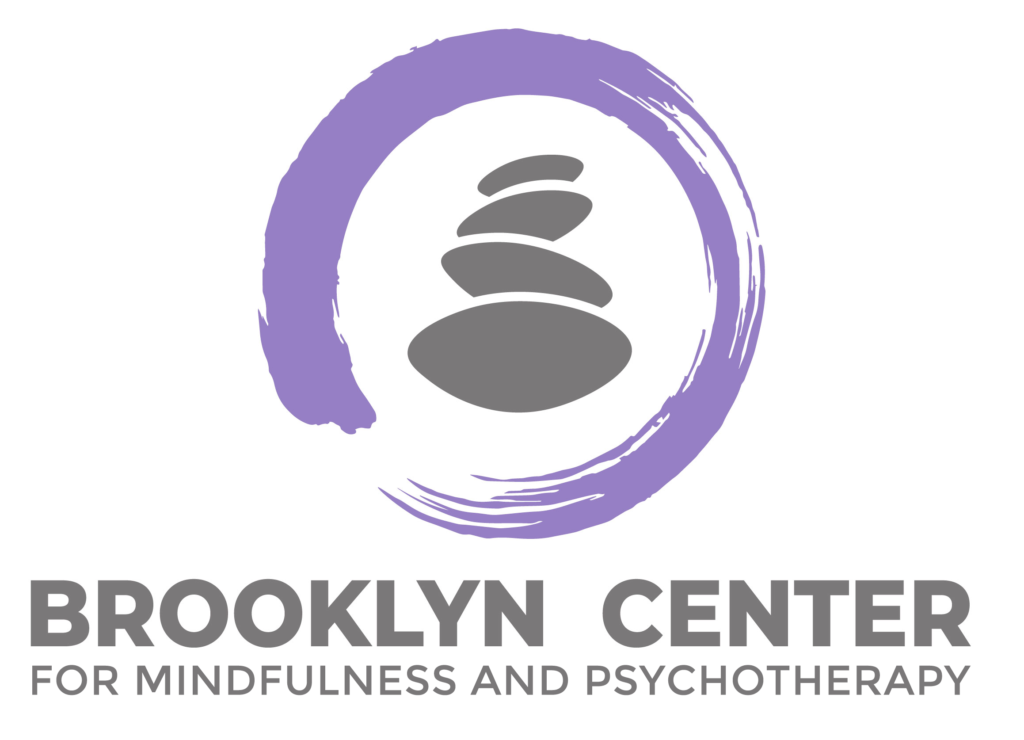Brooklyn Dialectical Behavioral Therapy
- Home
- Brooklyn Dialectical Behavioral Therapy
2 Top-Rated DBT Therapists in Brooklyn
1. Liza Mordkovich, LCSW

- Education: Masters degrees in art therapy and counseling, masters in social work with a concentration on mental health
- Services: Individual psychotherapy, biopsychosocial assessments, coaching
- Specializations: Perinatal mental health, anxiety, sleep issues, obsessive compulsive disorder, phobias, panic disorder, personality disorders, couples therapy, depression, trauma/grief and ptsd, ADHD
- Therapeutic Orientation: Cognitive behavioral therapy, acceptance and commitment therapy, dialectical behavioral therapy, exposure and response prevention for OCD, prolonged exposure, cognitive processing therapy
- Years in Practice: 20 years in practice and 12 years in private practice.
- Learn more about Liza Here
2. Patricia Giarraffa, MHC-LP

- Education: Masters in school counseling and masters in mental health counseling
- Services: Psychotherapy for individuals, teens, couples and family.
- Specializations: Anxiety disorders, depression, teens and children, parenting support, obsessive compulsive disorder.
- Therapeutic Orientation: Cognitive behavioral therapy, dialectical behavioral therapy and exposure and response prevention.
- Years in Practice: 3 years in practice
- Learn more about Patricia Here
Best DBT Therapy Brooklyn
Feeling overwhelmed by intense depression can be isolating and exhausting. If you’re grappling with these fluctuations, you’re not alone. Our team of dedicated Dialectical behavioral therapy (DBT) therapists in Brooklyn understands the challenges you face and is here to offer the tools and support you need to cope effectively. Dialectical Behavior Therapy provides invaluable strategies for managing emotions, improving relationships, and enhancing overall well-being. Dialectical behavior therapy is comprised of individual sessions for pre teens, teens and adults or DBT skills group.
Don’t let intense emotions dictate your life and affect your ability to function. Take the first step towards greater stability and empowerment by reaching out to our therapists today. Your journey towards emotional regulation and a more fulfilling life starts here. Ask about our DBT skills group!

Understanding DBT

Dialectical Behavioral Therapy skills are an evidence-based treatment that evolved from the coping skills from the Cognitive Behavioral (CBT) framework. Initially developed by Marsha Linehan, Ph.D for the treatment of suicidal and self harm associated with Borderline Personality Disorder (BPD), DBT has been adopted for treatment of anger management, relationship conflicts, eating disorders, and substance use. Most broadly, DBT helps adults and adolescents manage intense and difficult emotions. Mindfulness skills are effective in treating anxiety disorders. Dialectical behavioral approach still remains the gold standard treatment for borderline personality disorder
Dialectical Behavioral therapy treatment effectively addresses crisis management and emotional regulation to improve the moment. Think back to moments when overwhelming waves of emotions seemed insurmountable, leaving you feeling utterly helpless—Dialectical behavior tools offers invaluable skills to navigate those turbulent waters. Similarly, when faced with relational conflicts that test your communication abilities and challenge your capacity to assert your needs, DBT equips you with practical skills to mitigate stress and foster healthier interactions. By incorporating mindfulness, distress tolerance, emotion regulation, and interpersonal effectiveness techniques, behavior therapy empowers individuals to navigate emotional upheavals and interpersonal challenges with greater resilience and effectiveness, ultimately will improve ability to cope and live balanced and fulfilling life.
Why choose Brooklyn Center for Mindfulness and Psychotherapy
At Brooklyn Center for Mindfulness and Psychotherapy, we understand that choosing the right approach center for Dialectical Behavior (treatments is a significant decision. With so many options available, it’s essential to find a provider that aligns with your needs, skill, values, and goals for treatment. Here’s why choosing us to help you manage can make a profound difference in your journey towards emotional well-being and fulfillment.
Expertise in Dialectic Behavior Therapy: Our practice specializes in dialectical behavioral therapy, with therapists who are extensively trained and experienced in delivering behavior therapy skills interventions. We adhere to the comprehensive and evidence-based dialectical behavioral model developed by Dr. Marsha Linehan, ensuring the highest standard of care.
Holistic Approach: We take a holistic and evidence based approach to counseling, recognizing that emotional well-being is influenced by various factors, including reducing intense emotions, thoughts, behaviors, and relationships. Our therapists work collaboratively with individuals to address difficult emotions and challenging behavior, fostering comprehensive healing and growth.

Individualized Treatment Plans: We recognize that every individual is unique, and there is no one-size-fits-all approach to treatment. At Brooklyn Center for Mindfulness and Psychotherapy, we tailor our treatment plans to meet the specific needs, preferences, and goals of each client. This personalized approach ensures that counseling is relevant, effective, evidence based and meaningful for every individual we serve.
Emphasis on Skill Building: DBT skills is renowned for its focus on teaching practical skills for managing stress, emotion regulation and reducing intense emotions, coping with distress tolerance, and improving interpersonal relationships. Our therapists are dedicated to empowering clients with the tools and behavioral therapy they need to manage navigating life’s challenges with resilience and confidence.
Compassionate and Supportive Environment: We cultivate a warm, compassionate, and nonjudgmental atmosphere where clients feel safe to explore their emotions, relationships, thoughts, and behavior. Our therapists provide unwavering support, validation, and encouragement throughout the therapeutic process, fostering a trusting and collaborative relationship with each client.
Continued Growth and Progress: Our commitment and relationships with our clients extends beyond the therapy room. We are dedicated to supporting our clients in their journey towards continued growth, progress, and transformation. Whether you’re working towards overcoming specific challenges or striving for personal growth and fulfillment, we are here to support you with practical skills that can leave the therapeutic space.
Choosing Brooklyn Center for Mindfulness and Psychotherapy for Dialectical behavior therapy Brooklyn means choosing a compassionate, skilled, and dedicated team committed to your emotional well-being and growth. We invite you to take the first step towards a brighter tomorrow by reaching out to us today.
Ask about our skills group!
FAQs about DBT therapy
Core Mindfulness
Being present in the moment, free from the grip of past emotions or future anxieties, is at the core of this skill. It teaches an acute awareness and ability of what currently exists. Techniques like “observe, describe, and participate” encourage active engagement with the present, fostering a deeper connection with immediate experiences. Moreover, the principles of “non-judgmentally” and “one-mindfully” advocate for engaging fully in each moment without prejudice and focusing on one activity or thought at a time.
Mindfulness skills extend beyond mere awareness; they also teach balance and the art of “riding the wave of emotions.” This involves acknowledging and accepting emotions as they arise, allowing individuals to experience them fully without being overwhelmed. Understanding the different states of mind—rational mind (logic and reason), emotional mind (perception through an emotional lens), and wise mind (a blend of both)—is pivotal. It enables individuals to navigate complex situations with clarity and discernment, ultimately fostering emotional resilience and well-being.
Emotion Regulation
Emotion regulation is the art of finding balance amidst intense feelings, allowing individuals to separate themselves from their emotional experiences. Picture a day where anxiety, sadness, or frustration weighs heavily on you; mundane tasks might exacerbate these emotions, creating a cycle of heightened distress. Similarly, when anger consumes you, it colors your perception, leading to further frustration and irritation. At our center, we specialize in teaching techniques to navigate and regulate these emotional highs, empowering individuals to regain control and find equilibrium even in the face of challenging emotions.
Interpersonal Effectiveness Skills
Mastering effective communication and interpersonal ability is paramount for nurturing healthy relationships and ensuring your needs are met. These coping skills, teach to assertive communication and problem-solving, encompass asserting boundaries, articulating needs, and resolving conflicts constructively.
Imagine a scenario where expressing your needs leads to genuine fulfillment—a reality achievable through assertive communication techniques. While many shy away from confrontation, fearing conflict, it’s crucial to recognize that differences in opinion need not escalate into heated disputes. Communication forms the bedrock of any relationship, underscoring the importance of voicing your needs and desires.
Moreover, dialectical behavioral therapy equips individuals with invaluable tools for setting boundaries, improving interpersonal effectiveness in your life. Also, these powerful dialectical behavior tools assist with learning how to confidently asserting oneself, fostering a sense of empowerment in interpersonal interactions. By honing these interpersonal skills, individuals can cultivate more fulfilling relationships founded on mutual understanding, respect, and effective communication.
Distress Tolerance
When faced with distressing moments or personal crises, it’s crucial to have specific tools to cope effectively, steering clear of harmful behavior like substance use or self-harm. Our center offers tailored crisis management strategies designed to guide individuals through tumultuous times, decreasing depression and providing a lifeline when life feels shattered.
Navigating chaos can leave us feeling fragmented and lost, but it’s important to remember that healing often requires traversing through the darkness. Our approach emphasizes resilience-building techniques and coping strategies tailored to each individual’s needs, offering support during the darkest and most daunting moments until a sense of calm and stability is restored.
If you’re struggling to navigate through life’s storms, reach out to us today and learn how DBT skills can help! We’re here to provide the coping ability, support and guidance you need to weather the storm and emerge stronger with distress tolerance on the other side. DBT skills work!
If you’re seeking Dialectical Behavioral Therapy ( therapists in Brooklyn, several resources can help you connect with qualified professionals. Online directories like Psychology Today and GoodTherapy allow you to search for therapists specializing in DBT within your area, including those offering virtual sessions.
Furthermore, our practice offers virtual sessions, allowing individuals located outside of Brooklyn to access DBT treatment from the comfort of their homes. Whether you’re in Brooklyn or beyond, our clinicians are dedicated to providing personalized and effective DBT therapy to support you on your journey towards healing and growth. Reach out to us today to schedule a consultation and begin your transformative journey.
Dialectical Behavioral Therapy (offers numerous potential benefits for individuals struggling with emotional dysregulation, interpersonal difficulties, and other mental health challenges. Research suggests that DBT can effectively reduce symptoms of depression, anxiety, and borderline personality disorder (BPD) while improving overall emotional well-being and quality of life (source: PsychCentral). With its focus on the here and now, distress tolerance, emotion regulation, and interpersonal effectiveness, DBT equips individuals with practical tools to manage intense emotions, navigate relationships, and cope with life’s stressors (source: Behavioral Tech).
It’s important to remember that each person’s experience with counseling is unique, and the benefits may vary from individual to individual. By working with a skilled therapist who can tailor DBT techniques to suit your specific needs, you can effectively manage your emotions and cultivate a more fulfilling life.

Our DBT therapists are here to help you feel more in control over your emotions.
At our practice, we understand the challenges that come with navigating intense emotions and difficult situations. Our DBT therapists teach how to individuals to regain control over their emotional experiences and lead more fulfilling lives. With a philosophy rooted in compassion and evidence-based techniques, we’re committed to providing personalized support tailored to your unique needs. Whether you’re struggling with emotional dysregulation, relationship issues, or coping with life’s stressors, our team is here to help you develop practical skills to manage your emotions effectively. If you’re ready to take the first step towards greater emotional well-being and empowerment, we invite you to reach out for a free consultation with one of our experienced DBT therapists. Together, we can embark on a journey towards healing and growth.


